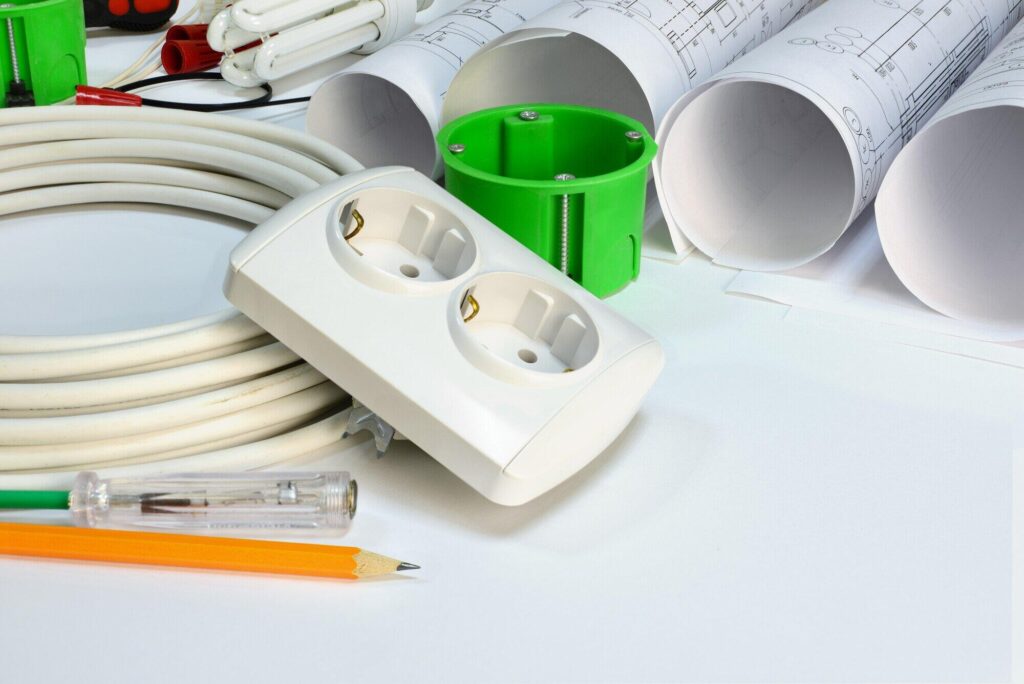When it comes to electrical systems, the quality of the connectors often decides how reliable the entire setup will be. Whether you’re wiring a factory machine or setting up outdoor lighting at home, electrical connectors are the link that keeps everything running smoothly. Choosing the right type can prevent equipment failure, electrical hazards, and costly downtime.
This guide breaks down the key factors that make an electrical connector durable, efficient, and long-lasting, so you can make the right choice for your project every time. Let’s get into it!
Understanding What Makes a Connector “Durable”
Durability in an electrical connector isn’t just about how tough it looks. It’s about how well it performs under real-world conditions over time.
A durable connector should resist corrosion, endure vibration, handle varying temperatures, and maintain a tight, secure connection. In industrial environments, connectors may face extreme heat, dust, and exposure to chemicals. In home or commercial settings, they must handle repeated connections and disconnections without wear or looseness.
Look for connectors rated for long service life and environmental protection. A product that’s built for the conditions of your application will always outperform a general-purpose connector.
Key Factors to Consider
Selecting a reliable connector involves balancing several important factors. Here’s what to look for before you buy:
Material Quality
The material of a connector’s housing and contacts has a big impact on how well it works. Metal connectors are strong and great for industrial use because they resist impact and block electromagnetic interference. Plastic or composite types are lighter and don’t rust, making them good for outdoor or portable setups.
Always choose materials rated for heat and flame resistance. Quality materials help connectors handle stress, moisture, and temperature changes without breaking down.
Environmental Resistance
Electrical connectors often face harsh conditions like dust, rain, or saltwater. Choose ones with an IP rating that protects against water and dirt.
For example, IP67 connectors can handle short dips in water, while IP68 types work even when fully submerged. If your setup often deals with moisture or grime, these ratings help your connectors last longer and stay reliable.
Current and Voltage Rating
Not all connectors can handle the same amount of power. Make sure the connector’s current and voltage ratings match your system.
If a connector is overloaded, it can overheat or fail. For high-power setups, pick connectors with a little extra capacity to keep things running safely, even when power levels change.
Connection Type
Connectors come in different shapes, like circular, rectangular, or modular. Circular types work well in tough environments, while rectangular ones are easier to mount on panels or boxes. If your system needs regular maintenance, choose quick-connect or locking styles to save time and keep the connection secure.
Durability in Real-World Use
It’s easy to think of connectors as small parts of a large system, but they play a major role in keeping everything stable and efficient. A single weak connector can disrupt the flow of power or data, causing downtime or safety risks.
Let’s look at a few ways that durability shows up in everyday and industrial use:
Industrial Equipment
Factories often rely on machines that run nonstop in harsh environments. Heat, vibration, and electrical noise can quickly wear out weak connectors. In these cases, it’s best to use industrial-grade connectors built with sealed housings and locking mechanisms that resist loosening from vibration.
Outdoor Power Systems
Outdoor setups like stage lighting, EV chargers, and power tools face rain, dirt, and changing temperatures. Connectors for these uses need to be tough and sealed against the weather. Choosing ones with waterproof seals and UV-resistant materials keeps them safe and working well.
Home and Commercial Use
Home and office systems also need reliable connectors to prevent breakdowns. Good connectors help lights, tools, and devices run smoothly every day. They also cut down on repairs and replacements, saving time and money in the long run.
Compatibility With Power Cables and Wiring
Durable connectors only work well when paired with the right power cables. Make sure the connector matches the cable’s gauge and insulation type for a secure fit.
Mismatched parts can cause poor conductivity or overheating, while a proper match improves efficiency and extends lifespan. For setups that move or disconnect often, choose connectors that attach easily without losing their seal or contact quality.
Design Features That Improve Longevity
Some connectors are designed with small but important features that extend their lifespan and reliability.
- Gold-plated contacts
- Strain relief
- Locking mechanisms
- Sealed housings
These design upgrades might add a small cost upfront, but pay off by reducing maintenance and replacements.
Safety and Certification
When choosing connectors for any project, safety should always come first. Look for certifications from organizations such as UL, CSA, or IEC. These approvals show that the product meets strict safety and performance standards.
For critical systems-like medical devices or heavy machinery-compliance isn’t optional. Using certified connectors ensures both personal safety and equipment reliability.
Balancing Cost and Quality
It’s tempting to go for the cheapest option, especially when you need many connectors. However, in electrical systems, cutting corners often leads to higher long-term costs.
A low-cost connector might seem fine at first, but it can degrade faster under stress. Replacing failed connectors later means extra labor, downtime, and possible damage to other components. Investing in durable, well-built connectors from the start saves money and frustration over time.
Choosing the Right Supplier
The best connectors come from suppliers who specialize in durable, high-performance products. Look for companies that provide detailed technical data, customization options, and reliable customer support.
Trusted manufacturers offer clear specifications, proper ratings, and proven track records across various industries. They can also help match connectors to your specific needs, ensuring a perfect fit for your power, signal, or data lines.
Choose the Right Electrical Connector with this Guide
Choosing durable electrical connectors might seem minor, but it’s a key part of any reliable system. The right, weather-resistant connector can mean the difference between smooth performance and constant maintenance.
Whether you’re running heavy equipment or setting up gear at home, pick connectors with the right materials, ratings, and design. A little extra care now leads to safer and more efficient setups later.
Is this article helpful? Keep reading our blog for more.






